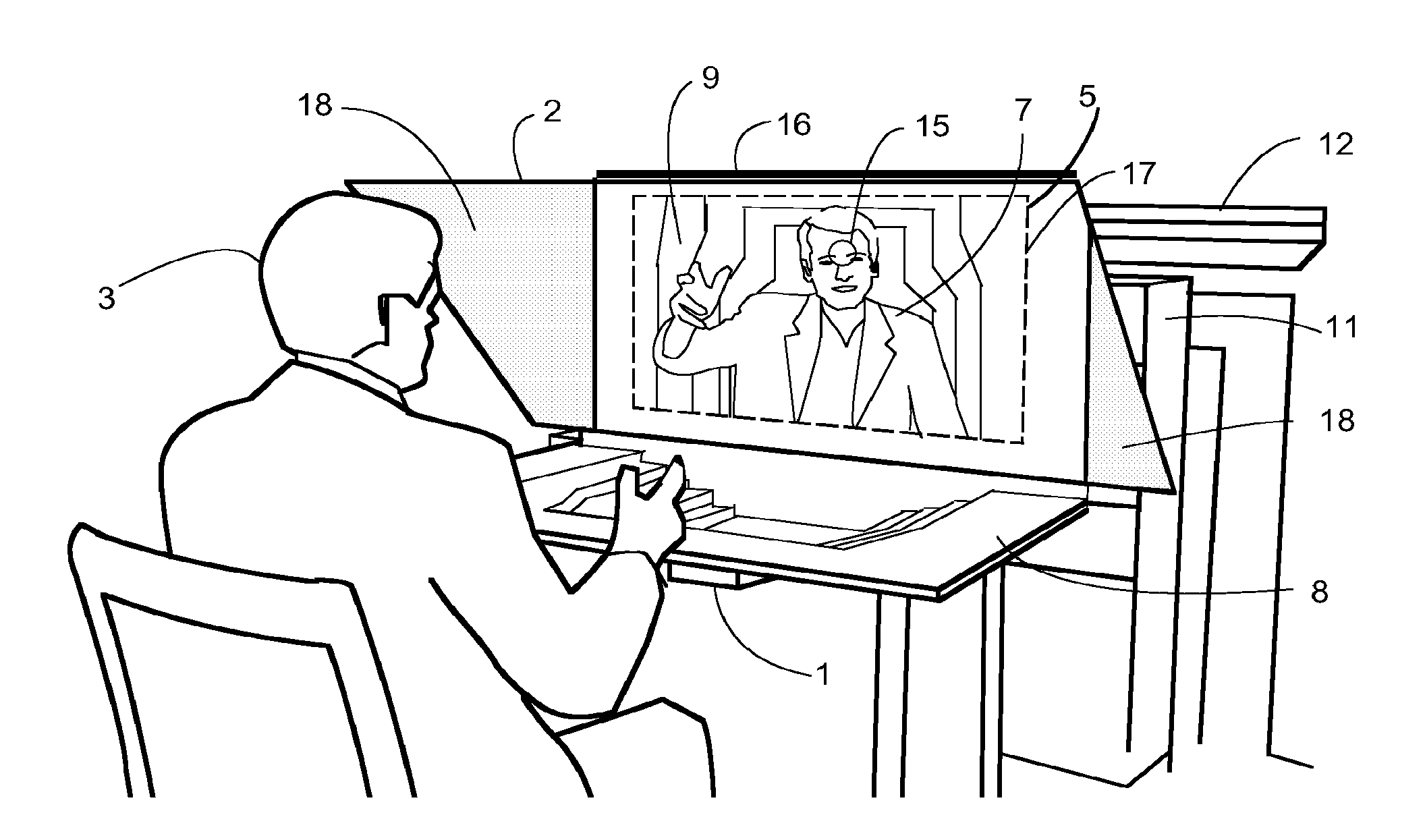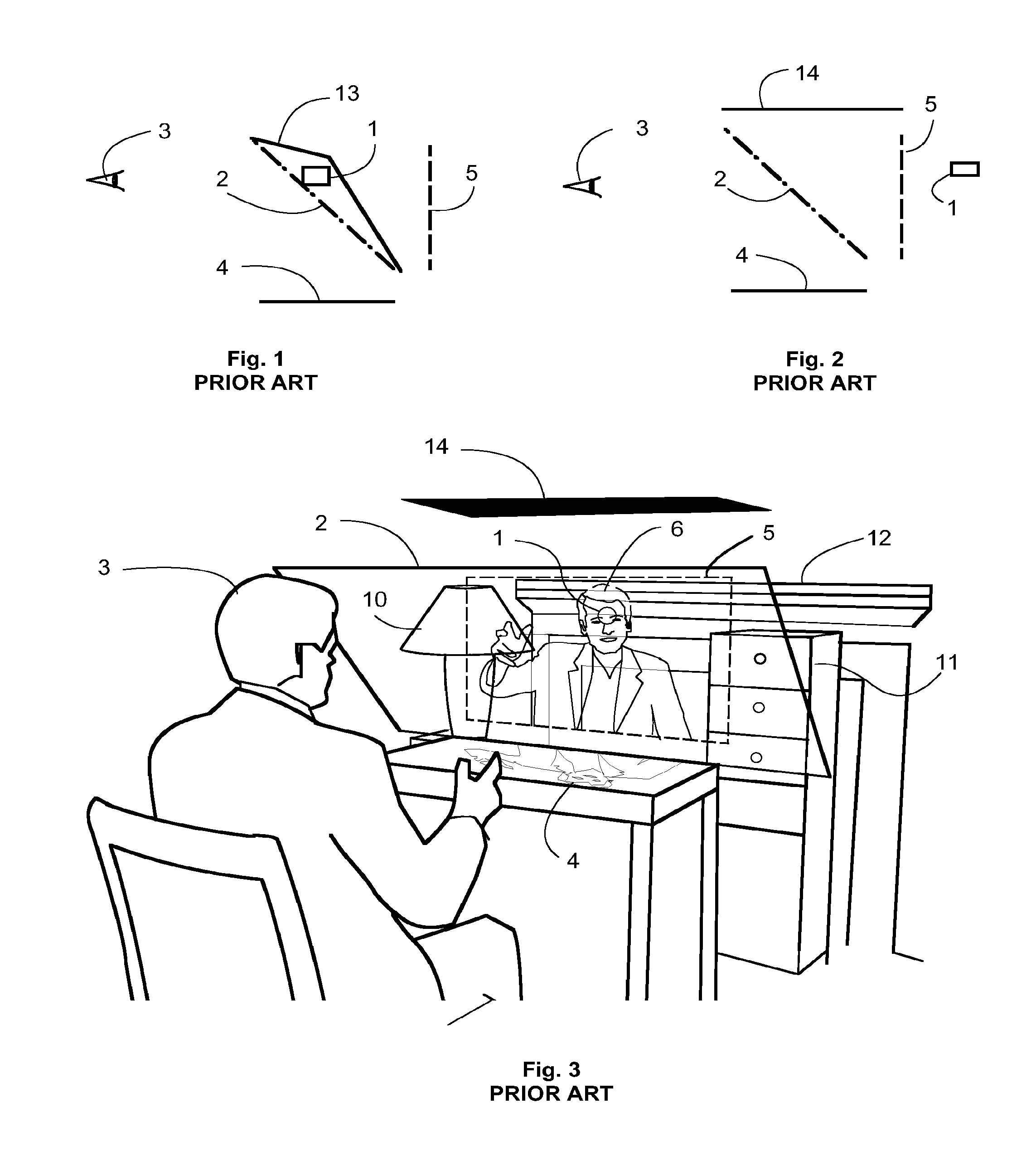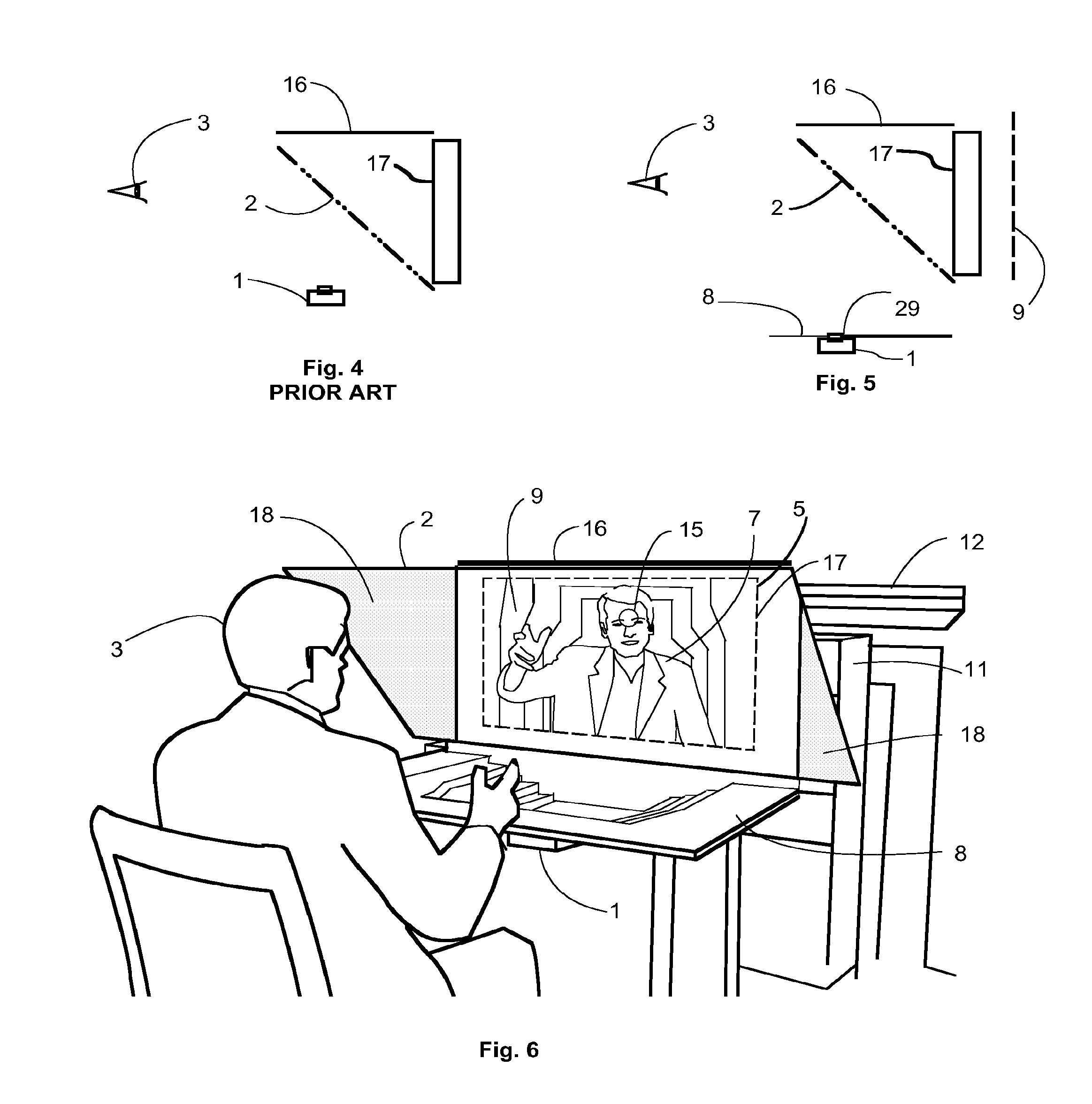3-D Displays and Telepresence Systems and Methods Therefore
a display and telepresence technology, applied in the field of video conferencing equipment, can solve the problems of excessive bulky display system, achieve the effect of avoiding adverse image brightness, effective delivery of video images, and optimizing the quality of delivery
- Summary
- Abstract
- Description
- Claims
- Application Information
AI Technical Summary
Benefits of technology
Problems solved by technology
Method used
Image
Examples
Embodiment Construction
[0150]Embodiments and advantages of the invention will be discussed in general terms, first, followed by a more detailed description of specific preferred embodiments. The telepresence communications system is comprised of an image on an image display device, which is positioned directly behind the two-way mirror. The image display device may be a flat panel plasma or LCD monitor, rear projection video system, front projection on a screen or other image display method capable of displaying moving images. For the purpose of clarity, the vertical plane of the image on the image display system is described as a first plane. A second plane is described as a plane parallel to the first plane and further away from the user. A backdrop is positioned further away from the two-way mirror than the image on the image display device so that a reflection of the backdrop appears in the location of the second plane. The two-way mirror and the backdrop are set at angles that will result in the refl...
PUM
 Login to View More
Login to View More Abstract
Description
Claims
Application Information
 Login to View More
Login to View More - R&D
- Intellectual Property
- Life Sciences
- Materials
- Tech Scout
- Unparalleled Data Quality
- Higher Quality Content
- 60% Fewer Hallucinations
Browse by: Latest US Patents, China's latest patents, Technical Efficacy Thesaurus, Application Domain, Technology Topic, Popular Technical Reports.
© 2025 PatSnap. All rights reserved.Legal|Privacy policy|Modern Slavery Act Transparency Statement|Sitemap|About US| Contact US: help@patsnap.com



